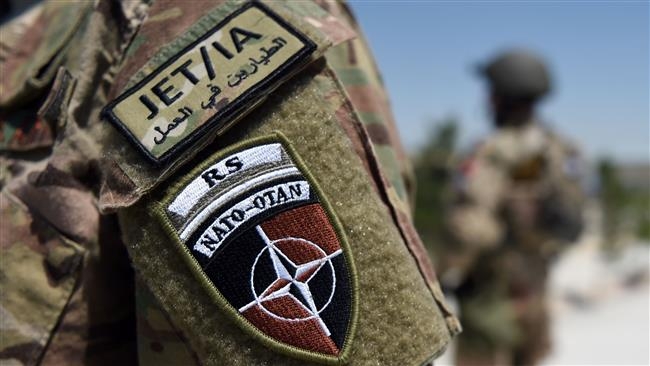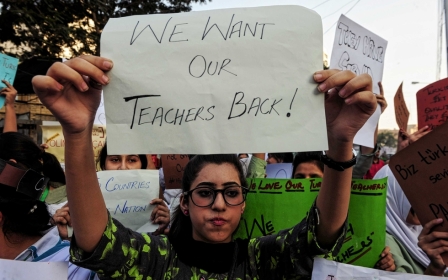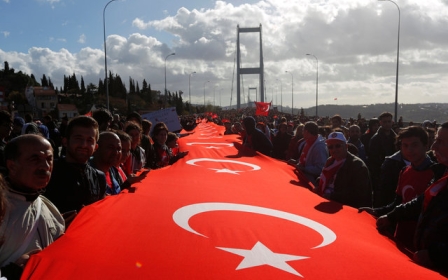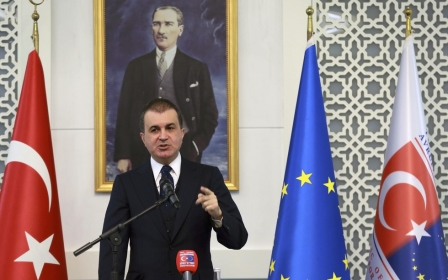NATO officers among thousands of Turks seeking asylum in Germany

Turkish military officers serving with NATO in Europe have requested asylum since the abortive coup in Turkey in July, alliance Secretary General Jens Stoltenberg said on Friday.
Several of them have sought sanctuary in Germany after being stationed at the Ramstein Air Base, a US base in south-western Germany used by NATO, Germany's DPA news agency reported on Friday.
Germany said on Friday that asylum requests from Turkish nationals in general have more than doubled this year, with 4,437 claims to the end of October compared with 1,767 in the whole of 2015.
The Turkish state's crackdown since a failed coup attempt against President Recep Tayyip Erdogan in July has seen more than 110,000 people in the military, civil service, judiciary and elsewhere sacked or suspended, and 36,000 people jailed pending trial as part of inquiries into the coup bid.
Authorities have dismissed hundreds of senior military staff serving with NATO in Europe and the United States as part of the crackdown.
Stoltenberg stressed that Turkey remains a crucial NATO ally and condemned the 15 July putsch, but he also demanded that Ankara respect the rule of law even as it seeks to remove suspected coup plotters from its armed forces.
"Some Turkish officers working in NATO command structures, some of them have requested asylum in the countries where they are working," Stoltenberg told a conference.
"As always, this is an issue that is going to be assessed and decided by the different NATO allies as a national issue."
Stoltenberg, who has already raised the matter with the Turkish government, is to travel to Istanbul on Sunday for a meeting of lawmakers from across the alliance, joining Erdogan and senior government ministers for the NATO Parliamentary Assembly's annual session.
The scope of the purges has caused alarm among human rights groups and some Western allies, who fear that Erdogan is using the putsch attempt as a pretext to curtail dissent.
Stoltenberg said NATO, which is designed to protect allies from attack, is based on what he called "core values" of democracy and the rule of law.
"I expect all allies to live up to those values," he said.
"When I visited Turkey in September, the message from the Turkish leadership was that they would prosecute those responsible and Turkey has the right to prosecute (them)."
But he said he had been reassured that "this will also be done in accordance of the rule of law".
Turkish officials say the scale of the crackdown, which enjoys broad popular support at home, is justified by the gravity of events on 15 July, when rogue soldiers commandeered tanks, fighter jets and helicopters, bombing parliament and government buildings in their attempt to seize power.
More than 240 people, many of them civilians, were killed in the coup attempt.
Tensions have been high between Turkey and NATO over what the latter sees as the country's unpredictable foreign policy over Syria, while domestic commentators have been angry about what they view as NATO's lukewarm response to the coup attempt.
New MEE newsletter: Jerusalem Dispatch
Sign up to get the latest insights and analysis on Israel-Palestine, alongside Turkey Unpacked and other MEE newsletters
Middle East Eye delivers independent and unrivalled coverage and analysis of the Middle East, North Africa and beyond. To learn more about republishing this content and the associated fees, please fill out this form. More about MEE can be found here.




